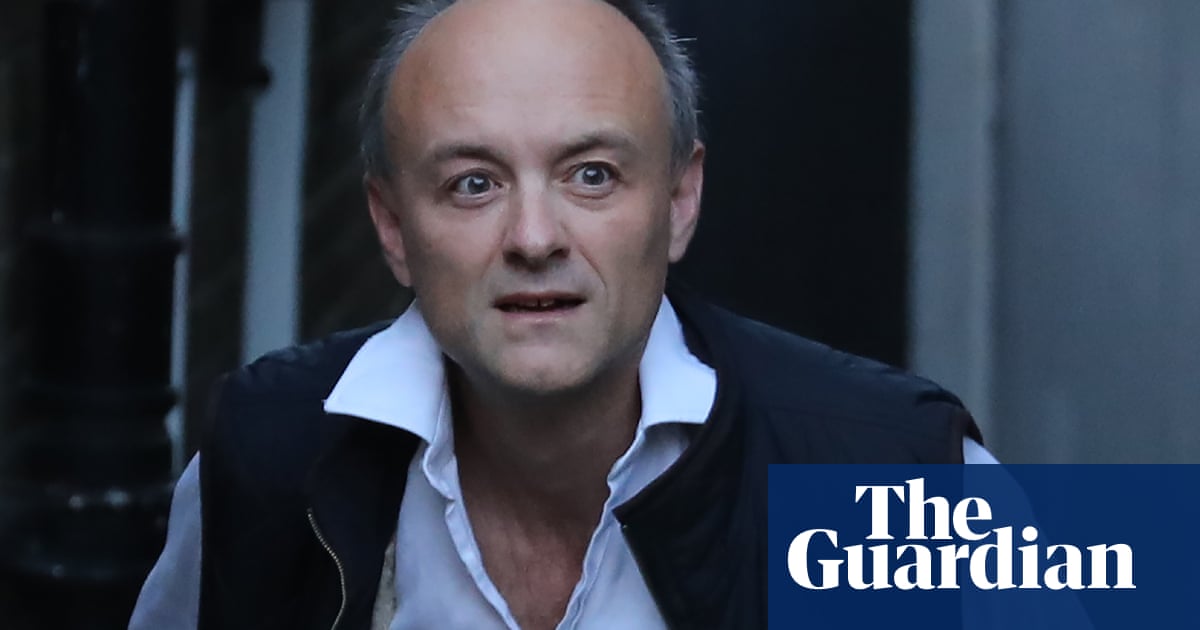
Michael Gove acted unlawfully when the government awarded a contract without a tender to a polling company owned by long-term associates of his and Dominic Cummings, then Boris Johnson’s chief adviser, a judge has ruled.
Campaigners had taken legal action against Gove over the decision to pay more than £500,000 of taxpayers’ money to the market research firm Public First, after the start of the coronavirus crisis in March 2020, and questioned the involvement of Cummings.
Mrs Justice O’Farrell, who gave the ruling on the Cabinet Office contract with Public First, said: “The decision of 5 June 2020 to award the contract to Public First gave rise to apparent bias and was unlawful.”
She ruled that the Cabinet Office’s failure to identify or consider any other research agency to carry out the work gave the appearance of “a real danger” that the contract award was biased.
Labour demanded an investigation into Gove after the ruling, with the party’s deputy leader, Angela Rayner, calling for Boris Johnson to open an investigation into whether the senior Cabinet member breached the ministerial code over the decision.
But the Cabinet Office said “there will be no investigation”, arguing that Gove “was not involved in the decision to award this contract”.
In her letter Rayner said there appeared “to be a clear case of the ministerial code being breached” and asked what steps were being taken “to recoup the taxpayers’ money that your government has handed out unlawfully to Conservative party friends and associates”.
The ruling is the first in a series of judicial review legal challenges brought by the Good Law Project (GLP) against government Covid-19 contracts awarded with no competitive tenders under emergency regulations.
Public First is run by husband and wife policy specialists James Frayne and Rachel Wolf, both of whom previously worked with Cummings and Gove, the Cabinet Office minister.
The company was initially given a Cabinet Office contract last January, having been recommended to civil servants by Cummings and three other senior Johnson staff.
It conducted focus groups with mostly new Conservative party voters in northern English towns, about what the government’s “levelling up” promise meant to them. When the pandemic hit, Cummings urged civil servants to hire Public First to hold focus groups on the government’s Covid-19 health messaging.
The first contract, for £90,000, was below the threshold at which an open competitive tender is legally required. Internal emails disclosed for the legal action revealed that a Cabinet Office civil servant had described that work as “Tory party research agency tests Tory party narrative on public money”. The civil servant said in a witness statement that she had not meant that seriously.
The second contract was for a maximum of £840,000 but was awarded under regulations that waived the requirements for a tender due to the coronavirus emergency. Public First was ultimately paid £564,393 for that work, which also included a Public First partner, Gabriel Milland, being seconded to work in Downing Street’s Covid-19 communications operation.
When the Guardian and OpenDemocracy first revealed the contract last July, the Cabinet Office said it was “nonsense” to suggest that Frayne and Wolf’s long association with Cummings and Gove had been a factor in the decision. However, when the case reached a hearing in February, Cummings confirmed in a witness statement that Frayne and Wolf were his long-term friends, and that he had been instrumental in Public First being given the Covid-19 work.
Cummings said he had not requested they be brought in because they were his friends, but because he believed, due to his knowledge of the company, that it was the only one capable of doing the work well at such short notice. The Cabinet Office argued in its legal defence that the “past professional connection” between Cummings and the Public First owners “simply enabled a better judgment to be reached about whether Public First were indeed the best/only suitable body to perform the services as needed”.
The GLP argued, however, that the Cabinet Office acted unlawfully, with apparent bias, in awarding the contract without considering other companies.
The government defended the case determinedly, refusing to limit its costs, which it said could reach £600,000, putting the GLP, a not-for-profit organisation that raises money through crowdfunding, at severe financial risk if it lost the case and had to pay the government’s costs.
Lawyers for the Cabinet Office tried to have the claim thrown out by arguing the GLP had no “standing”, as it was not a competitor company deprived of a contract opportunity. But O’Farrell rejected that, saying the GLP had sufficient standing because it has “expertise and experience in holding the government to account in respect of its public procurement decisions”. She said the organisation “has no ulterior motive in pursuing the challenge” and “has a sincere interest in promoting good public administration”.
A Cabinet Office spokesperson said its procedures had been improved following a review by the lawyer Nigel Boardman in December. “Procedural issues raised in this judgment have already been addressed through the implementation of the independent Boardman review of procurement processes.”
A Downing Street spokesperson said: “We welcome the judgment that we were entitled to award the contract on the grounds of extreme urgency in response to an unprecedented global pandemic. The judgment makes clear that there was no suggestion of actual bias in the decision to award the contract, it was not due to any personal or professional connections.”
A Public First spokespersonsaid the ruling did not criticise the company. He said: “We’re deeply proud of the work we did in the early stages of the pandemic, which helped save lives.”
Jolyon Maugham QC, director of the GLP, said: “We just don’t understand how the prime minister can run a cabinet that acts without proper regard for the law or value for public money. Government has claimed there was no favouritism in the awarding of contracts. But the high court has held an informed observer would conclude otherwise.”












